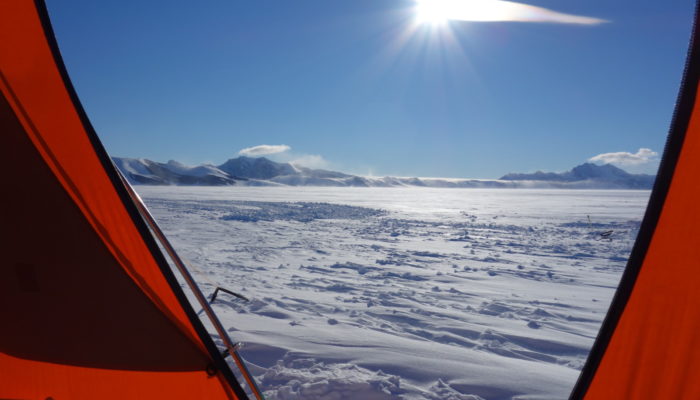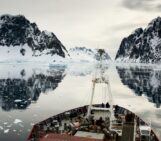
On the 1st December 1959 the Antarctic Treaty was signed by 12 nations, setting aside nearly 10% of the Earth “forever to be used exclusively for peaceful purposes… in the interests of all mankind.” In the years that followed more and more countries signed the agreement, until today when the agreement has been signed by 54 countries around the globe. In 2010, the Foundation for the Good Governance of International Spaces held the first Antarctica Day as an annual event to build global awareness of this landmark treaty, celebrating this milestone of peace and collaborative scientific research.
The treaty itself enshrines several important articles, including:
- Art. I Antarctica shall be used for peaceful purposes only
- Art. II Freedom of scientific investigation in Antarctica and cooperation toward that end… shall continue
- Art. III Scientific observations and results from Antarctica shall be exchanged and made freely available
But Antarctica is very far removed from most people’s lives, no more so than during 2020 when research trips and field excursions have been almost entirely cancelled – including many to the frozen continent. So why is research in Antarctica still so important? We asked several people and groups why they think research in this remote, but special place really matters.
 Antarctica plays a central role in the Earth system: the Southern Ocean connects all the oceans in the world; the Antarctic ice surface has unique properties (its cold and highly reflective of incoming solar radiation); and the Antarctic ice sheet is the largest storage of fresh water on Earth – equivalent to almost 60 m of sea level! On our current warming trajectory of human created climate change, we can expect increasing ice loss from Antarctica in the next few decades and centuries, maybe even millennia. At the same time, increasing snow fall in warmer air masses could also have a reducing effect on sea level rise, but only in the next few decades. But Antarctica is also not only a significant in terms of the future, it also holds a unique archive of the past: gas bubbles enclosed in the ice, up to more than one million years old. To fully understand our planet’s climate system, we need to analyse this archive of the paleo-atmosphere, which is sometimes only accessible by ice cores.
Antarctica plays a central role in the Earth system: the Southern Ocean connects all the oceans in the world; the Antarctic ice surface has unique properties (its cold and highly reflective of incoming solar radiation); and the Antarctic ice sheet is the largest storage of fresh water on Earth – equivalent to almost 60 m of sea level! On our current warming trajectory of human created climate change, we can expect increasing ice loss from Antarctica in the next few decades and centuries, maybe even millennia. At the same time, increasing snow fall in warmer air masses could also have a reducing effect on sea level rise, but only in the next few decades. But Antarctica is also not only a significant in terms of the future, it also holds a unique archive of the past: gas bubbles enclosed in the ice, up to more than one million years old. To fully understand our planet’s climate system, we need to analyse this archive of the paleo-atmosphere, which is sometimes only accessible by ice cores.
So why is research in Antarctica is so important?
For me, research in Antarctica is important for various reasons: As a scientist: it still holds many important secrets to reveal, how all Earth compartments interact: water, air, solid Earth – and the biosphere. As a citizen: our future generations will be severely impacted by the way all components of Antarctica will respond to climate change – from ice to living things – and therefore we need to know their fate to be able to adapt and mitigate appropriately in time as a society. As a human: Antarctica is still a largely pristine environment, humbling and fascinating, one of the best places to demonstrate what nature is able to achieve and make us – as humans – aware of the role we play.
Olaf Eisen, EGU Cryospheric Sciences Division President and Professor of Glaciology at the Alfred Wegener Institute
 We like to think of the region as a natural laboratory – it offers us an opportunity to study one of the most pristine environments on the planet, in an effort to try and quantify the effects that anthropogenic activities have on climate change.
We like to think of the region as a natural laboratory – it offers us an opportunity to study one of the most pristine environments on the planet, in an effort to try and quantify the effects that anthropogenic activities have on climate change.
Sive Xokashe, MSc researcher, University of Cape Town
 What happens in Antarctica affects us all – polar change influences weather, climate and sea levels worldwide. Finding out more about the last great wilderness is vital for understanding our planet and most importantly how to protect it.
What happens in Antarctica affects us all – polar change influences weather, climate and sea levels worldwide. Finding out more about the last great wilderness is vital for understanding our planet and most importantly how to protect it.
Ella Gilbert, Climate Science Presenter and researcher at University of Reading
 The reason why we are able to conduct research in Antarctica, regardless of our country of origin, is due to the aspirations of the Antarctic Treaty that was founded exactly 51 years ago today. Antarctic science represents the pursuit of effective international scientific cooperation whilst also conducting some of the most pressing research on climate change.
The reason why we are able to conduct research in Antarctica, regardless of our country of origin, is due to the aspirations of the Antarctic Treaty that was founded exactly 51 years ago today. Antarctic science represents the pursuit of effective international scientific cooperation whilst also conducting some of the most pressing research on climate change.
TJ Young, postdoctoral research at the Scott Polar Research Institute
 The fate of Antarctica determines the fate of our coastal cities. If we continue to burn oil, gas and coal, the warming will eventually destabilize not only the West Antarctic Ice Sheet but also parts of East Antarctica. The more we warm the planet the more sensitive gets Antarctica to our actions. Going beyond the Paris climate agreement threatens cities all around the world from New York to Calcutta from Amsterdam to Shanghai.
The fate of Antarctica determines the fate of our coastal cities. If we continue to burn oil, gas and coal, the warming will eventually destabilize not only the West Antarctic Ice Sheet but also parts of East Antarctica. The more we warm the planet the more sensitive gets Antarctica to our actions. Going beyond the Paris climate agreement threatens cities all around the world from New York to Calcutta from Amsterdam to Shanghai.
Anders Levermann, Professor of Dynamics of the Climate System at the Potsdam Institute for Climate Impact Research and lead author of a special 2020 paper investigating the ‘Antarctica Factor’.
 Research in Antarctica is so important to the LGBTQI+ scientific community because Antarctica is a truly international place where real networks, collaborations and friendships can be formed without borders. Antarctica Day celebrates the signing of the Antarctic treaty “with the interests of science and the progress of all mankind”. Pride in Polar Research aims to ensure that Antarctic research is for everyone, no matter their background.
Research in Antarctica is so important to the LGBTQI+ scientific community because Antarctica is a truly international place where real networks, collaborations and friendships can be formed without borders. Antarctica Day celebrates the signing of the Antarctic treaty “with the interests of science and the progress of all mankind”. Pride in Polar Research aims to ensure that Antarctic research is for everyone, no matter their background.
The Pride in Polar Research Organising Committee
 The Antarctic is a unique location for so many reasons. Firstly, it is a place of peace, international cooperation and is fully protected for the use of science and research only. In 1959, the Antarctic Treaty was signed by 12 nations to ensure that there will be freedom and collaboration for science and complete security from war, political disputes or nuclear waste. Since then, the treaty has been re-signed by 54 signatories, continuing the efforts for the future.
The Antarctic is a unique location for so many reasons. Firstly, it is a place of peace, international cooperation and is fully protected for the use of science and research only. In 1959, the Antarctic Treaty was signed by 12 nations to ensure that there will be freedom and collaboration for science and complete security from war, political disputes or nuclear waste. Since then, the treaty has been re-signed by 54 signatories, continuing the efforts for the future.
Secondly, the environment of the Antarctic is so special. Freezing cold, dark for half the year, the driest and windiest place on Earth, but home to over 200 species of animal. There have been many scientific findings and discoveries of world importance, such as the ozone hole, monitoring ice loss and sea level rise and discoveries of dinosaur fossils. There are glaciers, mountains, expanses of flat land, rough winds and even rougher seas.
It is also inspirational. Every year, thousands of scientists leave their comfy homes and families to live on the ice continent for months on end, sometimes in the depths of winter, all in the name of science. Before us, the first explorers risked their lives to find out what lay at the bottom of the map. Antarctica is cool in so many ways… (hahaha I love being a nerd)!
Jenny Turton, Early Career Scientist Representative for EGU Cryospheric Sciences Division and postdoctoral researcher, Friedrich-Alexander Universität Erlangen-Nürnberg.
If you are feeling inspired and want to show off your Antarctica knowledge, why not join the UK Polar Network online at 19.00 GMT on the 1st December 2020 for their very special Antarctica Day quiz!




